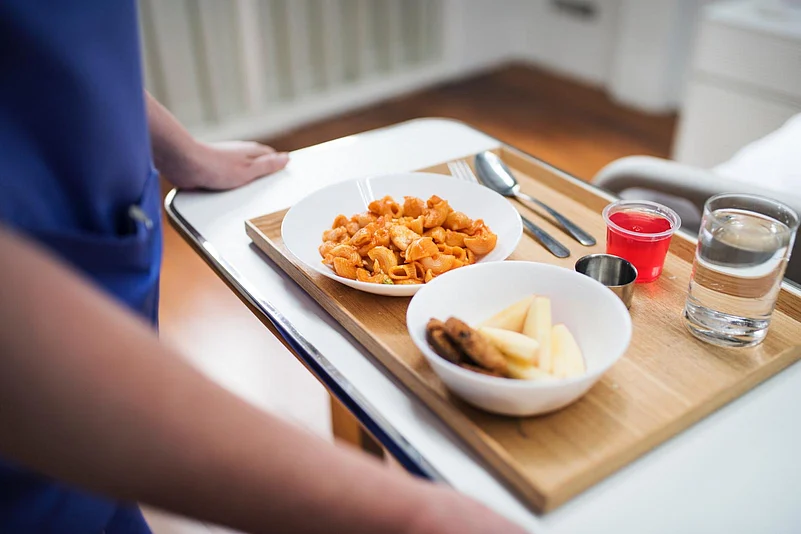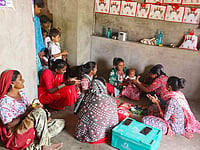How many times have you found yourself wondering why hospitals—institutions dedicated to healing and health promotion—paradoxically house food outlets that offer fast food items like fried snacks, pizzas and calorie-dense foods contributing to the rising burden of non-communicable diseases such as diabetes, hypertension, obesity, and heart ailments?
In India, fast food outlets selling such junk food items are common within hospital premises particularly big health institutions, though raising serious concerns about the message these institutions convey about health, in the United States, the presence of fast food in hospitals has come under intense scrutiny.
A recent poll conducted by the Physicians Committee for Responsible Medicine (PCRM)—a health advocacy nonprofit comprising 17,000 doctors—in collaboration with Morning Consult reveals that a majority of Americans oppose the sale of fast foods such as cheeseburgers, fried chicken, and pizza within hospital settings.
When asked, “Do you believe fast food—such as fried chicken, cheeseburgers, or pizza—should be sold in hospitals to patients, visitors, and staff?” 52% of respondents said “no,” and 57% said that hospitals should not profit from fast food sold on their premises. Most respondents, 85%, agreed that these foods do not promote good health. The poll was conducted July 1 to 3, 2025, among 2,202 US adults.
“While many people consider chicken to be a healthier option than red meat, consuming chicken can increase cholesterol just as much as eating red meat,” said Anna Herby, a nutrition education specialist for the Physicians Committee for Responsible Medicine, who oversees the organization’s Healthy Hospital Program. “Hospital staff, visitors, and patients would benefit by choosing more chickpeas and other plant-based foods instead of chicken.”
Consuming chicken has been linked to higher cancer risk, and consuming fried chicken is linked to higher risk of heart disease. Earlier this year, a study found that eating 300 grams of poultry—about the size of a large chicken breast—per week was linked to an increased risk of gastrointestinal cancer and death from all causes. A study published in BMJ found that women who ate fried chicken once or more per day had a 13% higher risk of death from any cause compared with women who did not eat any fried food and a 12% increased risk of death from heart disease.
In 2017, the American Medical Association adopted a resolution calling on hospitals to provide plant-based meals and remove processed meats, such as chicken nuggets, from menus.
The poll holds importance in the context of India too where the Union Health Ministry’s Directorate General of Health Services (DGHS) head, Atul Goel, last year issued a directive to all central government-run hospitals and medical institutes, urging them to cease the sale of unhealthy high-fat foods in their canteens and instead promote fresh, wholesome food. However, the extent to which this order has been implemented on the ground remains unclear, as no audit or compliance report has yet been made public.
There are already numerous studies that have sounded the alarm over the rising incidence of NCDs attributed to unhealthy diets—particularly junk and processed foods—as well as sedentary lifestyles in India. In response, the Indian Council of Medical Research (ICMR) released the latest edition of the Dietary Guidelines for Indians in 2024, aiming to steer public nutrition towards healthier choices. Doctors from the All India Institute of Medical Sciences (AIIMS), Delhi, at a press conference too emphasised the urgent need for dietary reforms to tackle obesity.
They pointed out that a significant portion of the population fails to consume adequate quantities of pulses, fruits, and vegetables—key components of a balanced diet. Dr. Parmeet Kaur, Chief Dietician at AIIMS, stated, “Indians are consuming more foods that they shouldn’t eat, leading to a rise in diseases linked to unhealthy diets. Nearly 56 per cent of diseases in India are associated with poor diet, and obesity remains a growing challenge not only nationally but globally.”



























